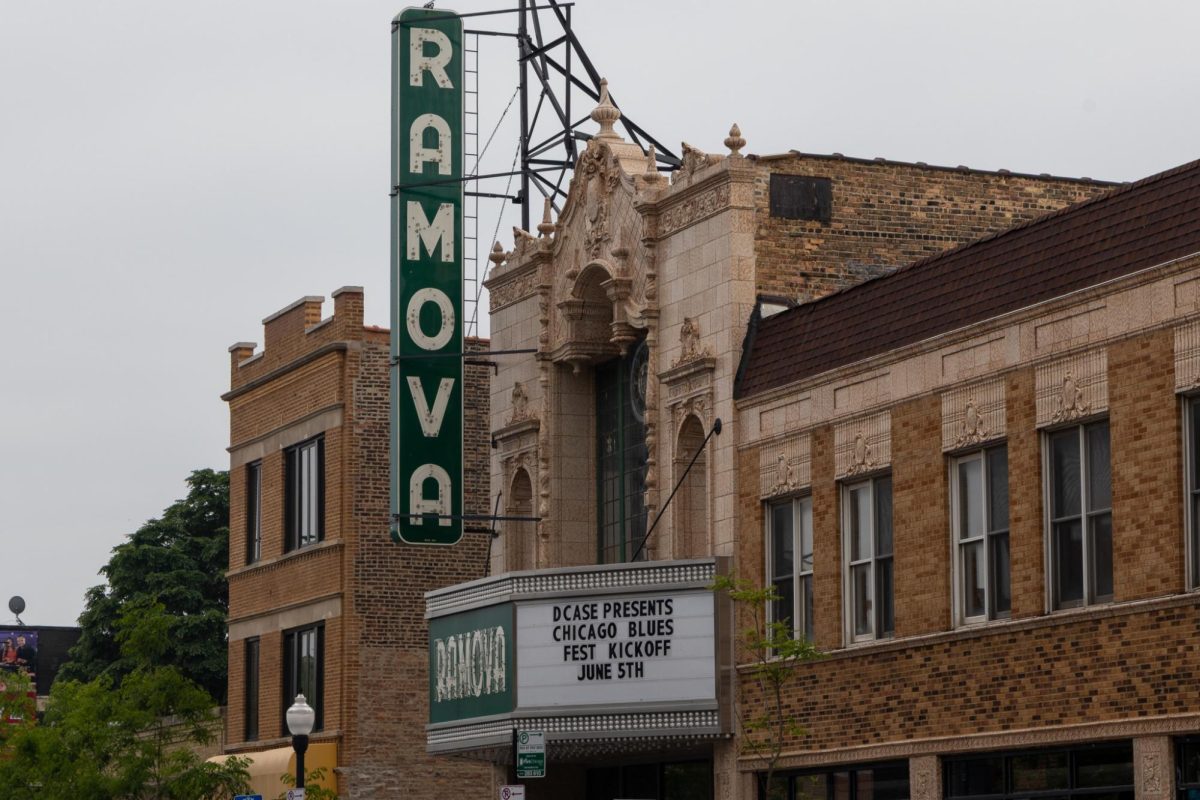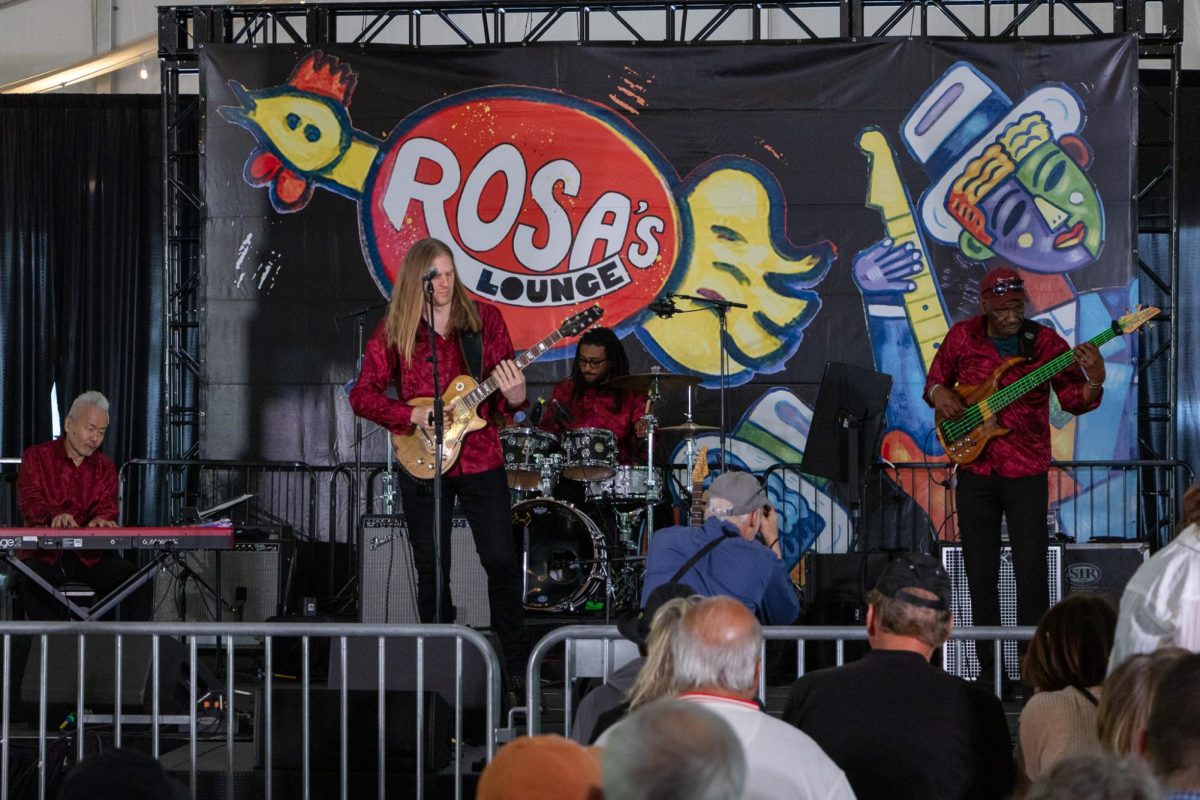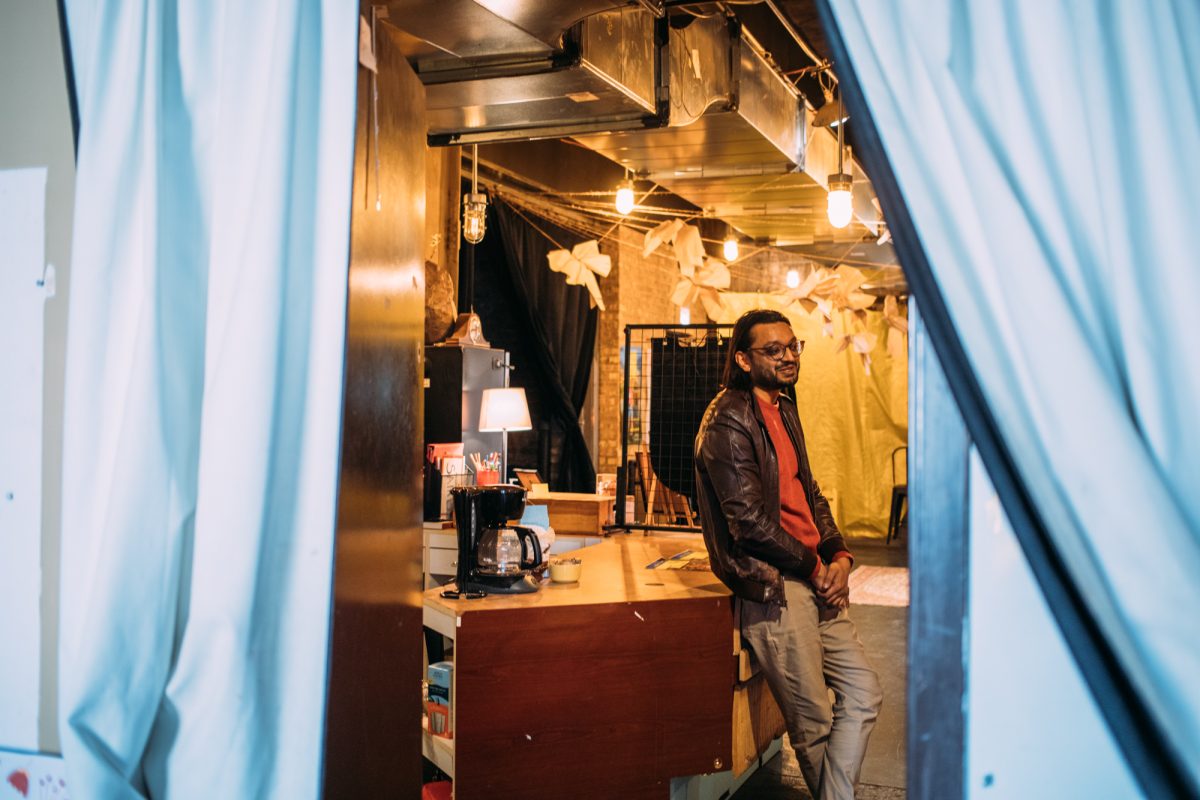At the kick-off this week to the Chicago Blues Festival happening this weekend, three-time Grammy winner and legendary blues artist Bobby Rush summed up the vibe.
“The blues is the mother of all music, and if you don’t like the blues, you probably don’t love your mother,” he said.
Rush made his remarks at the Ramova Theatre on June 5 to open the 41st annual Chicago Blues Festival.
The festival, founded by Chicago’s first Commissioner of Cultural Affairs, Lois Weisberg and Alligator Records founder, Bruce Iglauer, is a celebration of Chicago’s deep roots in the history of music.
Though Weisberg died in 2016, Iglauer was able to attend this year’s festival as a panelist. On the first night, he told the crowd “you could discover this music your whole life and never be done.”
Between legends like Rush and vocalist Deitra Farr, the first night of the festival was a trip through memory lane for its special guests, as well as its general audience. Old friends shared old stories, yet didn’t lose sight of the future of their beloved artform: the blues.
“I just think people should keep telling their stories,” Farr told the audience. “There’s some good stories out there. Just keep telling your stories.”

Farr was one of the many pleasures on the first night, while she spoke about her first ever interview as a music journalist with Chicago vocalist Patricia Scaggs, also known as Pat Soul– who passed away from lung cancer induced by second-hand smoke in 2005, just after getting to read Farr’s published interview with her.
Farr went on to send this interview and Soul’s obituary to Chicago City Hall, which she believes was a large part in the “no smoking” ordinance finally being passed in 2006.
This sentiment of the soul of blues music being able to create change echoed through the night, straight into the second panel with Rush.
“There’s a position now we can do hand in hand, record it and do things together, and show the world we can, we will get along and music will be the key to sort out a lot of things wrong in this life,” he said.
This sentiment was illustrated in an encounter with audience-member and local music educator Toni Elliott Bell, talking about the importance of teaching blues history to her students.
“It tells a story of who they are culturally,” she said. “As Bobby Rush says, there is nothing new about the music that they’re exposed to. It can be reinvented, but there’s a foundation of that and they get it from history and they don’t even know it, so I try to connect that bridge for them,” said Bell.
The Chicago Blues Festival also acts as the bridge Bell described..
The kick-off was just a taste of the colliding history the weekend promises. After two extensive panels, two full-scale performances took place from artists Billy Branch and The Sons Of Blues, as well as Bobby Rush.
Billy’s performance focused on the future of blues-style music, playing recent hits and forthcoming releases, including “Begging For Change,” a sprawling blues epic that included the combined talents of himself, his band and a local children’s choir. This range of talent created a visual and audible statement on blue’s power as a force for change, but only through the combined powers of past, present and future.
Rush played some classic hits that brought the crowd together in a fervor of dance ranging from slow-swaying to full body-swinging. The soul of blues connected each body in the Ramova Theatre during the entirety of his performance.
“We all have things that we hang onto. For the truth of the matter is that we need to hang onto things that we can put our hands on and believe in to teach people about our history, about what we know about, because as a writer and as a black man, that’s a thing that’s happening now. You’re erasing black history,” Rush said.
Rush’s wisdom defined the night and will go onto define the rest of the festival weekend.
Between artists new and old performing, like Grammy winner Mavis Staples and young guitarist Christone “Kingfish” Ingram, the remaining three days are a must-see slice of past, present and future that will connect its audience to the culture of Chicago and blues history.
Copy edited by Manuel Nocera
Resumen en español
Bobby Rush inauguró el 41º Festival de Blues de Chicago con palabras poderosas y clásicos del blues en el Teatro Ramova, acompañado por leyendas como Deitra Farr y Bruce Iglauer. La noche combinó historia musical y presentaciones que honraron las raíces y el futuro del género musical.
Con actuaciones de Billy Branch y el propio Rush, la primera noche del festival mostró al blues como una fuerza de conexión y cambio. La celebración continúa del 6 al 8 de junio en Millennium Park, con presentaciones de artistas como Mavis Staples y Christone “Kingfish” Ingram—gratis y abierta al público.
Resumen en español escrito por Manuel Nocera







